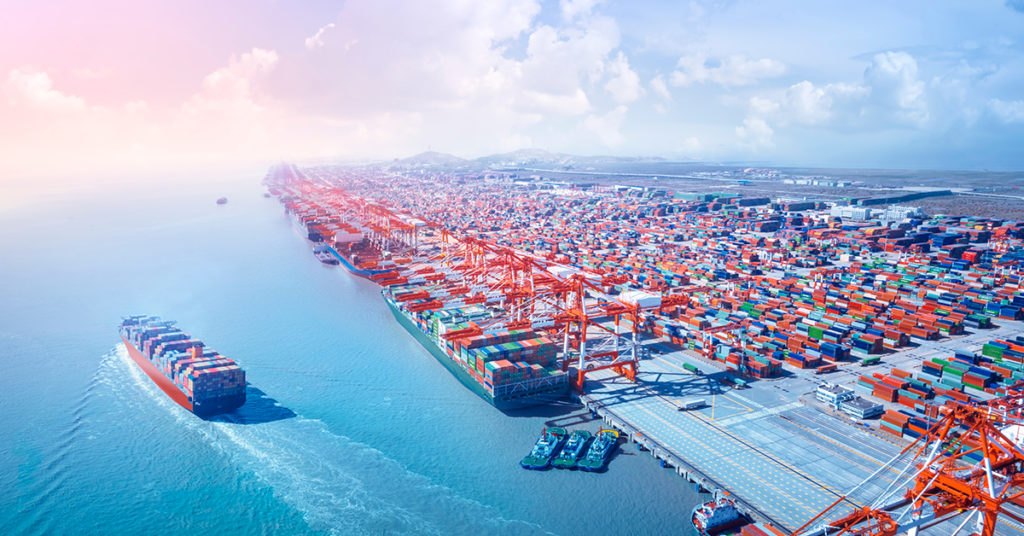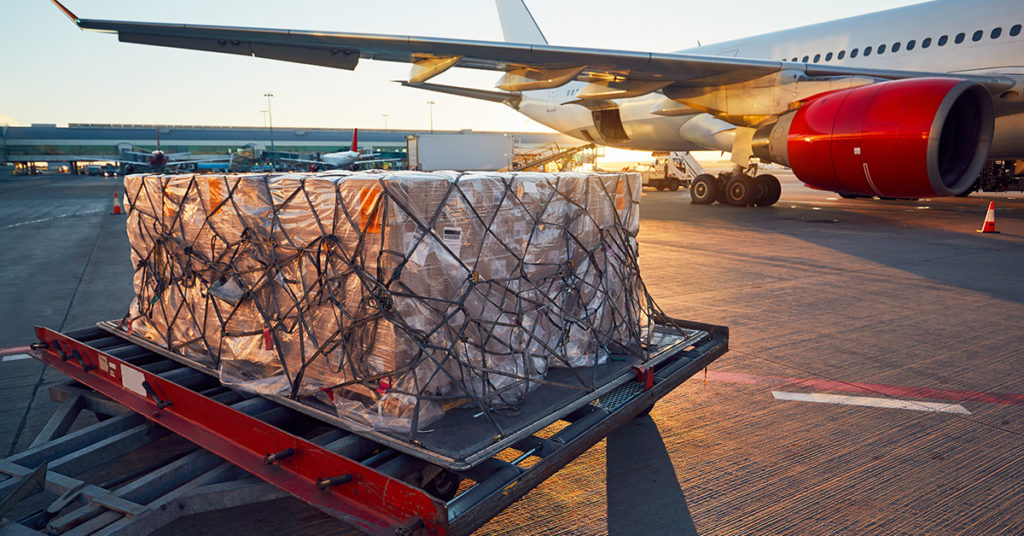
As a general rule, shipping by Sea is slower but cheaper & using Air Freight is faster but much more expensive. That is not always the case though. In this article we cover the Top 7 pros and cons of shipping goods via air or sea freight.
Tip 1 Speed
If getting products in stock is your number 1 priority then air freight is probably your best option.
Sending goods as air freight is usually a lot faster than sending them by sea. For example, a shipment that takes 7 days by air could take 30 days to 40 days or more by sea. Customs handling and delivery takes up most of the seven days for air freight, while the flight itself might be 24 hours or less.
If you need products in a hurry, air freight is the quicker option.
Tip 2 Cost
Even for big items for small shipments or very light products, air freight might be cheaper. For shipments of more than 50 kg, sea freight is usually better value. So if you only want to send a few units – the costs for air freight can work out much lower – as Sea freight shipments have a lot of built in costs.
Just the delivery truck from the port to Amazon’s warehouse can cost $500 to $1000 or more. Whereas when using an express service like Fedex or DHL for small shipments – these costs are factored in.
A 20,000 kg shipment by air might cost you $100,000, but this could all fit into one 40-foot container which might only cost $5000 to ship by sea. For large or heavy shipments air freight is very expensive and sea freight is a much cheaper option.
Tip 3 Size
On an airplane, space and weight capacity for freight is extremely limited, while large container ships can carry 3,000 or more containers in a single trip.
Air freight costs are calculated by the size and weight, and the larger of the two is used. A single 40-foot sea freight container can hold over 2000 cubic feet and over 60,000 pounds of weight. The price is usually fixed for a container, regardless of the size or weight of the goods inside.
If you need to send large or oversized items, it’s more economical to send them by sea. And it is best to consolidate several months of stock into a single shipment to save further costs.
Tip 4 Weight
Sea freight containers have a maximum weight limit but it is very high per container load. Even a small 20-foot container can hold almost 50,000 pounds. If the container costs $2500 to send, the cost is less than $0.025 a pound.
Air freight is based on volumetric weight, and charged by the pound. If the rate is $3 a pound, the same 50,000 pounds would cost you $150,000. Sending heavy goods as sea freight gets you more bang for your buck.

Tip 5 Availability
If you need to send goods urgently then air freight is the sensible option. Sea shipments leave less frequently and can take weeks to reach their destination. There can also be delays while the vessel gets loaded.
The longer it takes to get your goods, the longer your cash is tied up in inventory. So even though sea freight is cheaper, you need more capital to be able to ship goods by sea.
Tip 6 Which is Better
If you have light, high-value, smaller products, shipping them by air makes more sense. For larger, more bulky items, shipping them as sea freight will dramatically reduce the cost.
If you need stock fast, it might make sense to send 10% of your order by air if it’s urgent and the remainder by sea. That gives you the ability to get products to customers who need them quickly, but without costing you a fortune.
Tip 7 Finding an Agent or Freight Forwarder
Get multiple quotes for both sea and air freight.
Use Google to search for a freight forwarder in your nearest major city. Compare 2 or 3 different forwarders and choose the one that meets your budget and has a professional, courteous and responsive attitude. Also ask your factory to quote for both sea and air freight.
It is best to use a freight company that has an office in your country, the delivery country and the pick country. Then 1 company can handle every aspect of the shipment.
Taxes, Duties, VAT ect vary by marketplace so ask your freight company to advise you on these.
